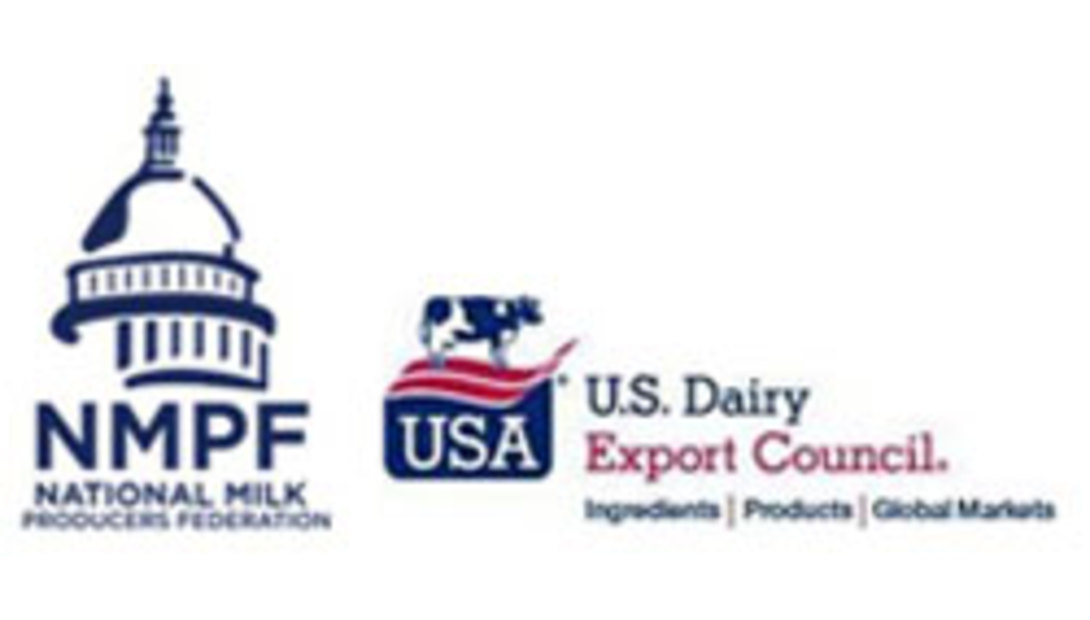
The U.S. Dairy Export Council (USDEC) and National Milk Producers Federation (NMPF) sharply criticized Canada’s allocation of its tariff-rate quotas (TRQ) under USMCA, released Tuesday, June 15. USDEC and NMPF call attention to the fact that these TRQ allocations undermine the intent of USCMA’s dairy provisions by thwarting the ability of the U.S. dairy industry to make full use of the trade agreement’s market access opportunities.
USDEC and NMPF have repeatedly warned that the full benefits of this carefully negotiated trade agreement will not materialize without careful monitoring and stringent enforcement of Canada’s USMCA commitments. The U.S. dairy industry urges the U.S. Trade Representative (USTR) to immediately raise this issue with Canada and insist that Canada adheres faithfully not just to the letter of its commitments under USMCA, but to its spirit as well.
“Canada’s administration of previous TRQs under existing free trade agreements gave the U.S. dairy industry ample cause for concern, which has unfortunately been confirmed by the announced TRQ allocations,” said Tom Vilsack, president and CEO of USDEC. “Canada’s actions place the U.S. dairy industry at a disadvantage by discouraging utilization of the full use of the TRQs and limiting the market access granted by USMCA. We urge the U.S. government to act immediately to ensure that these provisions are implemented in good faith so that the U.S. dairy industry is able to reap the full range of benefits negotiated by USTR and its interagency partners at U.S. Department of Agriculture.”
USMCA will enter into force July 1, 2020 and contains important provisions to the U.S. dairy industry that will facilitate the smooth flow of U.S. dairy products throughout North America at a time of critical need and economic uncertainty. However, Canada has announced the distribution of the TRQs in such a way as to discourage high value food service or retail products from entering the market. Most of the TRQs are given to competitors who have no incentive to import products.
“U.S. dairy farmers and cooperatives are ready to help increase deliveries of high-quality U.S. dairy products to the Canadian market, but Canada’s TRQ allocations fall far short of the full potential of its commitments under USMCA,” said Jim Mulhern, president and CEO of NMPF. “Canada has chosen once again to manipulate its access commitments in order to protect its tightly controlled dairy market and U.S. farmers will bear much of the brunt of this biased interpretation of USMCA’s dairy provisions. USTR should act quickly to ensure Canada is held strictly responsible for abiding by the intent of USMCA to promote fairer trade between our nations.”
The National Milk Producers Federation (NMPF), based in Arlington, Va., develops and carries out policies that advance the well-being of U.S. dairy producers and the cooperatives they collectively own. The members of NMPF's cooperatives produce the majority of the U.S, milk supply, making NMPF the voice of nearly 32,000 dairy producers on Capitol Hill and with government agencies. For more on NMPF's activities, visit www.nmpf.org.
The U.S. Dairy Export Council (USDEC) is a non-profit, independent membership organization that represents the global trade interests of U.S. dairy producers, proprietary processors and cooperatives, ingredient suppliers and export traders. Its mission is to enhance U.S. global competitiveness and assist the U.S. industry to increase its global dairy ingredient sales and exports of U.S. dairy products. USDEC accomplishes this through programs in market development that build global demand for U.S. dairy products, resolve market access barriers and advance industry trade policy goals. USDEC is supported by staff across the United States and overseas in Mexico, South America, Asia, Middle East and Europe. The U.S. Dairy Export Council prohibits discrimination on the basis of age, disability, national origin, race, color, religion, creed, gender, sexual orientation, political beliefs, marital status, military status, and arrest or conviction record.


